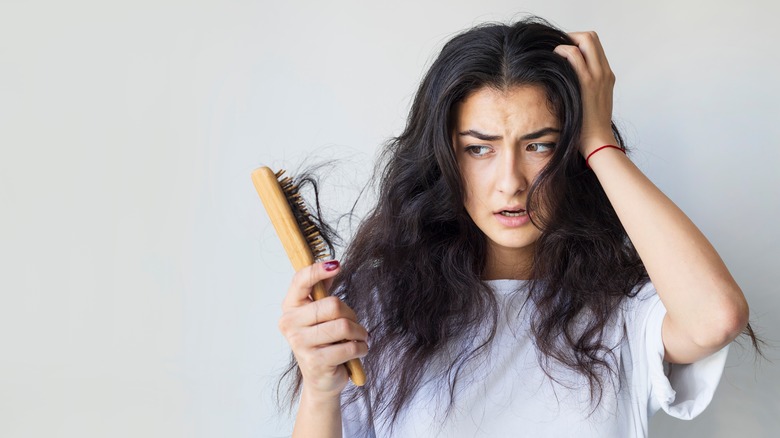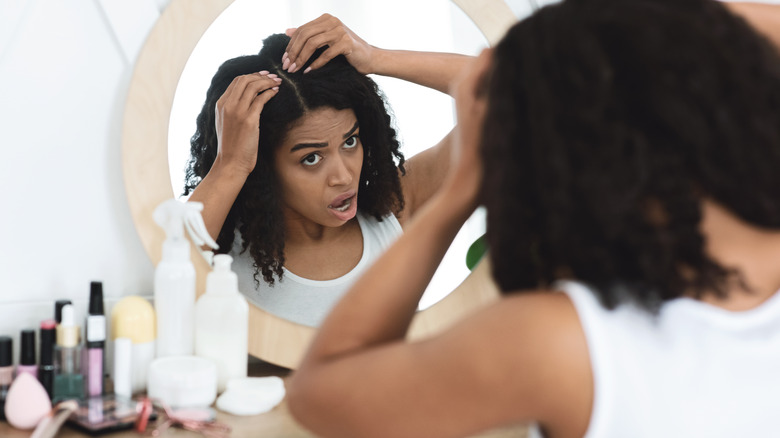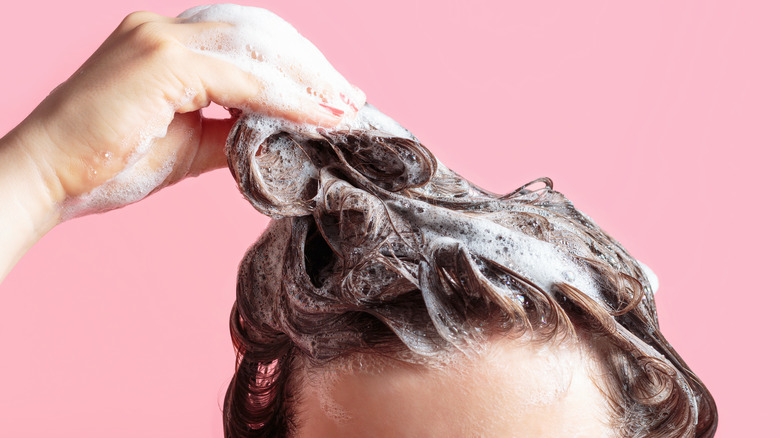How Long Does Postpartum Hair Loss Typically Last?
When a woman is pregnant, hormones play a significant role in the health of a woman's hair. The increased levels of estrogen in the body can cause the hair to grow faster and thicker, resulting in a fuller head of hair, as per BabyCenter. However, after childbirth, these hormones drop back to normal levels, which can cause a significant amount of hair loss. This is known as postpartum hair loss.
Postpartum hair loss is also known as telogen effluvium, which is a condition characterized by hair loss, usually from the scalp, according to the experts at Cleveland Clinic. It occurs when too many hair follicles are simultaneously in the resting phase (telogen) of the hair growth cycle, causing hair to fall out, explain the experts at Healthline. The condition is typically temporary and can be caused by various factors, including hormonal changes, environment, stress, certain medications, and poor nutrition, among others.
The timeframe
The length of time postpartum hair loss begins can vary. It typically starts around three months after giving birth and can stick around for up to six months, says the Cleveland Clinic. It's worth noting that postpartum hair loss is a natural process where you might lose about 100 hairs a day. However, the condition typically resolves on its own.
Luckily, it's not a permanent condition, but if you have any doubts, it's best to consult a dermatologist (per Healthline). There's no doubt that hair loss can be distressing for any woman, as it can affect their self-esteem and body image. On top of that, it might come at a time when other postpartum symptoms are also present, such as fatigue, mood swings, and difficulty sleeping, among others (via Mayo Clinic). Therefore, it might exacerbate feelings of stress. Suppose your hair loss might be causing distress or appears to be more severe and prolonged. In that case, it is important to consult a healthcare provider to rule out any underlying medical conditions.
How is postpartum hair loss treated?
Although postpartum hair loss typically resolves on its own, a few things can be done to help manage the condition and speed up the regrowth of hair. First, it might help to use volumizing shampoo, per the Cleveland Clinic, since they are typically formulated with ingredients that help thicken and plump up each strand of hair, giving it more body and fullness.
Additionally, eating a well-balanced diet is also important, according to Healthline. This includes a variety of nutrients, such as protein, vitamin C, and magnesium, which can help support healthy hair growth. Biotin, in particular, could also help, as hair is primarily made up of a protein called keratin produced by the vitamin, as per a 2017 study published in the journal Skin Appendage Disorders. Nonetheless, avoiding harsh heat styling, such as blow-drying and flat ironing, can also help minimize further hair loss and damage.



